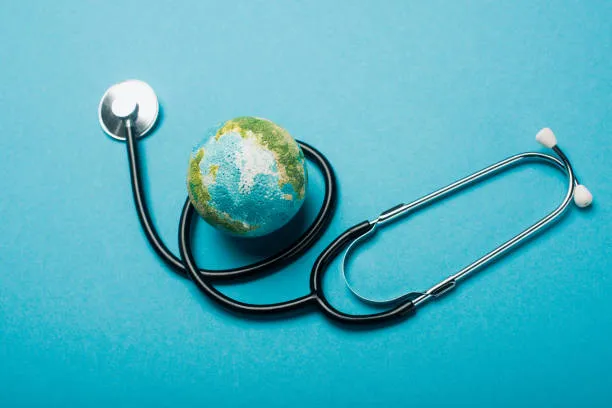
One World for Health: Inside the 78th World Health Assembly and the Future of Global Public Health
From May 19 to 27, 2025, Geneva, Switzerland, will once again become the epicenter of global health governance as it hosts the Seventy-eighth session of the World Health Assembly (WHA78). Convening under the unifying theme “One World for Health”, this year’s Assembly promises to be both historic and transformative, bringing together ministers of health, heads of state, global health leaders, and civil society representatives to chart a collective course through a complex and evolving global health landscape.
This year’s theme reflects the World Health Organization’s (WHO) longstanding commitment to equity, solidarity, and resilience in health systems. It is a clarion call to the world that health is a shared responsibility, and that the ability to lead a healthy life must not depend on geography, income, or circumstance.
A Pivotal Moment: The Pandemic Agreement on the Global Stage
Arguably the most anticipated milestone of WHA78 is the expected adoption of the Pandemic Agreement—a groundbreaking international accord that has been more than three years in the making. Developed through the work of the Intergovernmental Negotiating Body (INB), which includes representatives from all WHO Member States, this proposed agreement is being hailed as a once-in-a-generation opportunity to fortify the world’s defenses against future pandemics.
If adopted, this will be only the second time in WHO’s history that a proposal has been presented under Article 19 of the WHO Constitution, a powerful legal mechanism that allows Member States to craft binding international health agreements. The first such agreement was the 2003 Framework Convention on Tobacco Control, a landmark achievement in public health.

“This year’s World Health Assembly will be truly historic,” said Dr. Tedros Adhanom Ghebreyesus, WHO Director-General. “After three years of negotiations, countries are considering for adoption the first global compact to better protect people from pandemics. The Pandemic Agreement can make the world safer by boosting collaboration among countries fairly in the preparedness, prevention and response to pandemics.”
This development carries significant implications. The COVID-19 pandemic exposed profound inequities in access to healthcare resources and fragile international coordination. The proposed Pandemic Agreement aims to correct those failures through stronger legal frameworks for information sharing, equitable access to vaccines and treatments, and coordinated emergency responses.
Strengthening WHO Through Sustainable Financing
Another major focus at WHA78 will be WHO’s financial sustainability. Member States are set to review a proposed 20% increase in assessed contributions—mandatory membership dues—to support the next biennium’s Programme Budget (PB26–27), which spans 2026 to 2027. These discussions are not just about money; they reflect a broader effort to make WHO less dependent on earmarked voluntary contributions and more agile in responding to emerging health crises.
The upcoming biennium will also be the first full implementation phase of WHO’s Fourteenth General Programme of Work (GPW14), which outlines strategic global health goals for 2025 through 2028. However, in recognition of global financial constraints, the initially proposed budget of $5.3 billion USD has been scaled back by 22%, with the revised proposal now totaling $4.267 billion USD.
WHO leadership acknowledges the tough choices required. In response, the organization is pursuing a reprioritization initiative that emphasizes cost-saving measures, budget efficiency, and a sharpened focus on core public health functions. These changes aim to realign WHO’s priorities with the world’s most urgent health challenges and accelerate progress on the lagging health-related Sustainable Development Goals (SDGs).
A high-level pledging event for the WHO Investment Round will be held on Tuesday, May 20, providing an opportunity for Member States and philanthropic partners to signal their financial support. Sustainable financing, introduced as a key reform under Dr. Tedros’ leadership, remains a cornerstone of the broader WHO transformation agenda.
Measuring Progress and Charting the Future
Delegates will also reflect on achievements from the past year by reviewing the 2024 Results Report, the final performance review under the Thirteenth General Programme of Work. This comprehensive evaluation measures progress against the ambitious “Triple Billion” targets: ensuring one billion more people benefit from universal health coverage, are better protected from health emergencies, and enjoy better health and well-being.
The 2024 Results Report will be critical in identifying gaps, shaping upcoming priorities, and informing the continued evolution of WHO’s strategic focus areas.
A Packed Agenda: Health Systems, Climate Change, and More
The WHA78 agenda is ambitious in scope, with delegates expected to deliberate over 75 agenda items and sub-items, and to vote on more than 40 resolutions and decisions—many of which were pre-discussed during the 156th Executive Board session earlier this year.
Topics span a wide array of pressing health issues, including:
- Antimicrobial resistance
- Polio eradication efforts
- Health emergency preparedness
- The global health and care workforce
- Climate change as a determinant of health
- Loneliness and social isolation as public health challenges
These subjects reflect both long-standing public health priorities and newer challenges that have gained prominence in recent years. The Assembly will provide a crucial forum to explore evidence-based solutions and foster international cooperation.
Awards and Recognition
In celebration of extraordinary contributions to public health, the WHA President will present a series of public health prizes and awards on Friday, May 23. These honors recognize individuals and organizations whose innovations, advocacy, and service have advanced global health goals.
Additionally, on Tuesday, May 20, Dr. Tedros is expected to announce two Director-General’s Awards for Global Health, recognizing exceptional leadership and impact across key areas of global health.
Side Events and High-Level Dialogues
In addition to formal sessions, WHA78 will host 45 official side events from May 19 to May 24. These events offer critical platforms for focused discussions, collaborative workshops, and strategic partnerships on issues ranging from digital health and maternal care to health equity and climate resilience.
Among the key side events are:
- High-Level Pledging Event on WHO Financing (Tuesday, May 20): A platform for partners to make formal commitments to WHO’s financial sustainability.
- Ministerial Roundtable on Data and Sustainable Financing (Wednesday, May 21): This strategic dialogue will bring together health and finance ministers to explore scalable actions for strengthening national health data systems and financing strategies in pursuit of Universal Health Coverage (UHC).
Due to budget constraints, WHO has taken steps to reduce administrative and event costs by limiting evening sessions, shortening speaking times, and reducing non-essential hospitality and displays. Despite the leaner format, the Assembly remains rich in content and collaboration opportunities.
Pre- and Post-Assembly Engagements
WHA78 is bookended by two important governance meetings:
- PBAC42 (Programme, Budget and Administrative Committee) convened from May 14–16, laying groundwork for budgetary discussions during the Assembly.
- EB157 (157th Executive Board Session) will be held on May 28–29, immediately following the Assembly. Key items on its agenda include the appointment of a new Regional Director for the WHO African Region. A special session of the AFRO Regional Committee will convene on Sunday, May 18, to nominate a candidate.
A Defining Moment for Global Health Cooperation
With geopolitical tensions, climate change, infectious disease threats, and health inequities growing more complex, WHA78 comes at a defining crossroads. The anticipated adoption of the Pandemic Agreement, the recalibration of WHO’s financial strategy, and the broad health policy agenda mark this Assembly as one of the most consequential in recent memory.
As Dr. Tedros often emphasizes, “Health is not a luxury. It’s a human right.” This year’s Assembly is not just a bureaucratic gathering—it is a profound opportunity to shape a future where health systems are resilient, responsive, and rooted in global solidarity.
In a world still recovering from the shock of COVID-19, the message from Geneva is clear: united, informed, and better prepared, we can build a healthier, safer, and fairer world for all.





